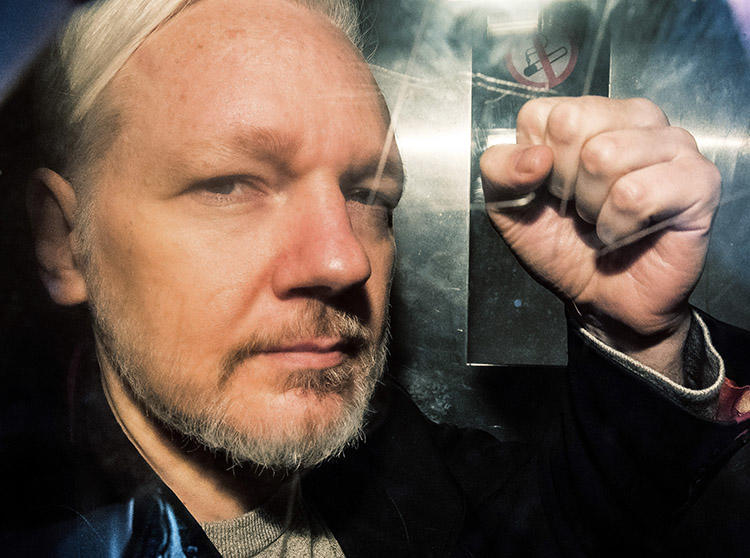The Committee to Protect Journalists welcomes WikiLeaks founder Julian Assange’s release following a plea deal with the United States Justice Department.
Assange pleaded guilty to an Espionage Act charge of conspiring to unlawfully obtain and disseminate classified national defense information in a plea deal finalized in federal court in the Mariana Islands, a U.S. commonwealth in the Western Pacific. On Wednesday, Assange returned to his native Australia.
“Julian Assange faced a prosecution that had grave implications for journalists and press freedom worldwide,” said CPJ CEO Jodie Ginsberg. “While we welcome the end of his detention, the U.S.’s pursuit of Assange has set a harmful legal precedent by opening the way for journalists to be tried under the Espionage Act if they receive classified material from whistleblowers. This should never have been the case.”
Assange was indicted on 17 counts under the Espionage Act and one count under the Computer Fraud and Abuse Act in relation to WikiLeaks publication of classified material, including the Iraq War logs. If convicted under these charges, he would have faced up to 175 years in prison.
CPJ has long opposed U.S. attempts to prosecute Assange and campaigned for his release jointly with other organizations.
Read CPJ’s statement.
- Pakistani journalist Khalil Jibran shot dead following threats from militants
- US journalist Evan Gershkovich faces 20-year sentence as trial begins in Russia
- Afghan journalist Abdullah Danish detained, beaten following reports critical of Taliban
- French journalist Sébastien Farcis leaves India after permit not renewed
- CPJ calls on Kenyan authorities to respect press freedom amid ongoing protests
- Niger reinstates prison sentences for journalists for defamation, insult
- Ghana ruling party supporters assault journalist Dokurugu Abubakar Ndeeya
- Nigerian authorities detain journalist Precious Eze Chukwunonso for 18 days
- Belarus jails journalist Alena Tsimashchuk for 5 years; reason for charges undisclosed
- CPJ welcomes acquittal of Turkish journalist Sezgin Kartal
- Moscow court detains journalist Artyom Krieger on extremism charges
- After 8 months in detention, Syrian journalist Sleman Ahmed faces spying charges in Iraq
Spotlight
This week, CPJ’s partners at Forbidden Stories published “The Gaza Project,” a collection of in-depth analysis investigating the killing of journalists in Gaza amid the ongoing Israel-Gaza war.
“From targeted attacks to the destruction of infrastructure known to host media outlets, the Gaza Project reveals a damning array of evidence against the Israeli government and calls into question their army’s denials about targeting the press since the war began,” stated Forbidden Stories.
CPJ has found that the Israel-Gaza war is the deadliest period for journalists since the organization began gathering data in 1992.
“This is one of the most flagrant attacks on press freedom that I can remember. The impact on press freedom in Gaza, in the region and the rest of the world is something we cannot accept,” CPJ Program Director Carlos Martínez de la Serna told Forbidden Stories.
Read the investigation and CPJ’s recent reporting on the Israel-Gaza war.
- My own prison ordeal gave me a taste of what Assange may be feeling. He’s out – but the chilling effect on press freedom remains — Peter Greste, The Conversation
- At last, Julian Assange is free. But it may have come at a high price for press freedom — Trevor Timm, The Guardian
- ‘Donald Trump will come for you’: MSNBC’s Ali Velshi tells Mediaite Trump win a threat to media critics — Tommy Christopher, Mediaite
- Cameroon: Military courts — Evan Welber Falcon, American Bar Association Center for Human Rights
Join CPJ on Tuesday, July 9 for a virtual webinar, “Journalist safety covering the election: Protests, policing and crowds,” part of CPJ’s U.S. Election Safety Summer! Designed to equip journalists with safety tools for covering the U.S. elections, the series is organized by the Committee to Protect Journalists, the International Women’s Media Foundation, and PEN America.
